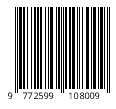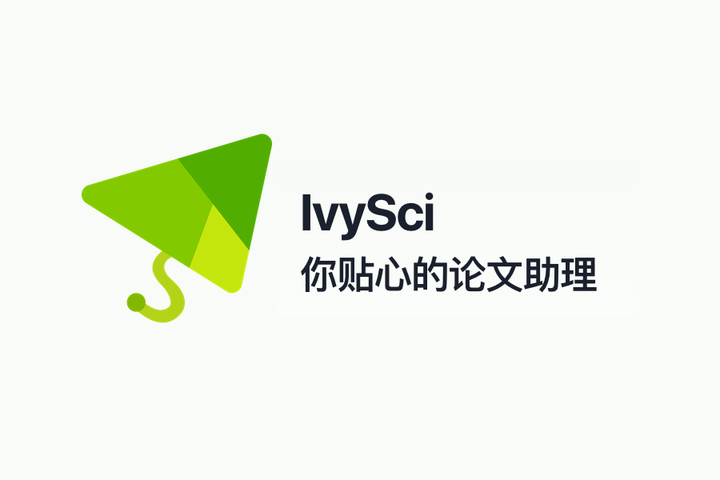Kebijakan Pendaftaran Elektronik: Perspektif Regulasi, Teknologi, dan Aksesibilitas
DOI:
https://doi.org/10.35166/jipm.v8i2.118Keywords:
Electronic Certificates, Electronic Documents, Land ServicesAbstract
This study examines the electronic land registration policy as a reform measure in land services in Indonesia. Through Minister of ATR/BPN Regulation Number 3 of 2023, the land administration system has begun to transition from a manual to a digital format to improve efficiency, transparency, and data security. Although this system offers numerous benefits, its implementation in the field still faces several obstacles, including limited internet access, a lack of technological understanding, and the public’s reliance on physical documents. This situation demonstrates that the success of an electronic system depends not only on the readiness of technology and regulations but also on how easily the public can access and utilize it. This article presents a more comprehensive approach by promoting synergy among policymakers, technology service providers, and the broader community. If all parties are actively involved, the electronic land registration system will not only be an administrative change but also a tool to strengthen land rights and improve the quality of public services.
References
Adinda, A., Tira, A., & Juliati, J. (2023). Kedudukan hukum sertifikat elektronik sebagai bukti kepemilikan hak milik atas tanah. Clavia, 21(3), 411–419. https://doi.org/10.56326/clavia.v21i3.4006
Afdilah, S., Agustina, N. S., Hani, I., & Gunawan, G. (2024). Penerapan teknologi ‘blockchain’ dalam meningkatkan keamanan sistem identifikasi pengguna. Journal Software, Hardware and Information Technology, 4(2), 47–62. https://doi.org/10.24252/shift.v4i2.142
Alfedo, J. M. (2021). Access rights of the electronic fiduciary registration system for corporations in Indonesia. Corporate and Trade Law Review, 1(2), 154–167. https://doi.org/10.21632/ctlr.1.2.154-167
Andari, D. W. T., & Mujiburohman, D. A. (2023). Aspek hukum layanan sertifikat tanah elektronik. Al-Adl: Jurnal Hukum, 15(1). https://doi.org/10.31602/al-adl.v15i1.7367
Anggraini, P. D. A., Aurora, A. D., Niravita, A., Fikri, M. A. H., & Nugroho, H. (2024). Electronic certificates in Indonesia: Enhancing legal certainty or introducing new challenges? Arkus, 11(1), 686–698. https://doi.org/10.37275/arkus.v11i1.659
Azzahra, S., & Alfiany, T. F. (2025). The existence of ATR/BPN in the implementation of electronic certificates in the 3T area based on the Minister of ATR/BPN regulation number 3 of 2023. Al-Adalah: Jurnal Politik, Sosial, Hukum, dan Humaniora, 3(3), 60–80. https://doi.org/10.59246/ aladalah.v3i3.1590
Bogusz, B. (2002). Bringing land registration into the twenty-first century: The land registration act 2002. The Modern Law Review, 65(4), 556–567. http://www.jstor.org/stable/1097595
Clark, E. E. (2010). E-government: Making Australia’s e-conveyancing system a reality. 2010 Sixth IEEE International Conference on E-Science Workshops, 141–147. https://doi.org/10.1109/ eScienceW.2010.32
Eshet, Y. (2004). Digital literacy: A conceptual framework for survival skills in the digital era. Journal of Educational Multimedia and Hypermedia, 93–106.
Gainer, M. (2017). Breaking New Ground: Pioneering Electronic Land Registration in Ontario, 1987-2010. https://successfulsocieties.princeton.edu/sites/g/files/toruqf5601/files/Canada%20Case%20 Study%20With%20Logo%20JRG_1_30_2017.pdf
Gumati, M. R. (2024). Digital sovereignty and state power: Indonesia’s approach to digital platforms regulation. JISPO: Jurnal Ilmu Sosial dan Ilmu Politik, 14(1), 99–126. https://doi.org/10.15575/ jispo.v14i1.39500
Kaczorowska, M. (2019). Blockchain-based land registration: Possibilities and challenges. Masaryk University Journal of Law and Technology, 13(2), 339-360. https://doi.org/10.5817/MUJLT2019-2-8
Kementerian Kominfo & Katadata Insight Center. (2022). Status Literasi Digital di Indonesia 2022. https://cdn1.katadata.co.id/media/microsites/litdik/ReportSurveiStatusLiterasiDigitalIndonesia2022.pdf
Khalid, M. I., Iqbal, J., Alturki, A., Hussain, S., Alabrah, A., & Ullah, S. S. (2022). Blockchain-based land registration system: A conceptual framework. Applied Bionics and Biomechanics, 2022, 1–21. https://doi.org/10.1155/2022/3859629
Krismantoro, D. (2023). The urgency of electronic land certificates in the land registration legal system in Indonesia. Journal of Law and Sustainable Development, 11(10), e1808. https://doi.org/ 10.55908/sdgs.v11i10.1808
Laksono, R. (2018). Pemanfaatan teknologi digital dalam proses alih media arsip statis. Diplomatika: Jurnal Kearsipan Terapan, 1(1), 47. https://doi.org/10.22146/diplomatika.28271
Leonard, T., & Simarmata, N. D. (2023). Legal dynamics of land digitalization in the electronic land registration system. Jurnal Hukum, 39(1), 65. https://doi.org/10.26532/jh.v39i1.30576
Low, R. (2005). Maintaining the integrity of the Torrens system in a digital environment: A comparative overview of the safeguards used within the electronic land systems in Canada, New Zealand, the United Kingdom, and Singapore. Australian Property Law Journal, 11(2), 155–178.
M. Zein, R., & Twinomurinzi, H. (2023). Blockchain technology in land registration: A systematic literature review. JeDEM - EJournal of EDemocracy and Open Government, 15(2), 1–36. https://doi.org/10.29379/jedem.v15i2.748
Merukar, S., Deshmukh, A., Vadje, P., & Bhosale, K. (2022). Land registration system using blockchain. International Journal of Advanced Research in Science, Communication, and Technology, 74–78. https://doi.org/10.48175/IJARSCT-3153
Mujiburohman, D. A. (2018). Potensi permasalahan pendaftaran tanah sistematik lengkap (PTSL). BHUMI: Jurnal Agraria dan Pertanahan, 4(1), 88–101. https://doi.org/10.31292/jb.v4i1.217
Mujiburohman, D. A. (2021). Transformasi dari kertas ke elektronik: Telaah yuridis dan teknis sertipikat tanah elektronik. BHUMI: Jurnal Agraria dan Pertanahan, 7(1), 57–67. https://jurnalbhumi.stpn.ac.id/index.php/JB/article/view/472
Mustofa, F. C. (2020). Evaluasi pengembangan sistem informasi pertanahan di kementerian agraria dan tata ruang/badan pertanahan nasional?’ BHUMI: Jurnal Agraria dan Pertanahan, 6(2), 158–171.
Nugraha, J. P., Wahyuni, & Kusmiarto, K. (2024). Prospek pemanfaatan teknologi blockchain untuk mengoptimalkan keamanan dokumen pertanahan elektronik. Kadaster: Journal of Land Information Technology, 2(1), 66–84. https://doi.org/10.31292/kadaster.v2i1.37
Pamungkas, E. A., & Purwadi, H. (2023). Application of electronic certificate in Indonesia and the adaptation of the provision of electronic certification (PSRE) under the Menteri Agraria/BPN nomor 1 tahun 2021. International Journal of Innovative Research in Multidisciplinary Education, 02(09), 401–404. https://doi.org/10.58806/ijirme.2023.v2i9n05
Pramesti, N. A., Junarto, R., & Farid, A. H. (2024). Land archive authentication as a result of media transfer at the land office. Marcapada: Jurnal Kebijakan Pertanahan, 3(1), 1–15. https://doi.org/10.31292/ mj.v3i1.38
Putra, R. A., & Winanti, A. (2024). Urgensi dan kendala dalam penerbitan dokumen sertifikat tanah elektronik pasca peraturan Menteri ATR/BPN nomor 3 tahun 2023. Jurnal USM Law Review, 7(2), 835–852. https://doi.org/10.26623/julr.v7i2.9178
Radbruch, G. (2006). Statutory lawlessness and supra-statutory law (1946). Oxford Journal of Legal Studies, 26(1), 1–11. https://doi.org/10.1093/ojls/gqi041
Rajagukguk, M. (2022). Implikasi Pendaftaran Badan Usaha secara Online melalui Sistem Administrasi Badan Usaha (SABU) bagi Notaris dan Pelaku Usaha [Tesis]. Universitas Islam Indonesia.
Rosmidah, R., Fathni, I., Supeno, S., & Abubakar, Y. S. (2024). Can electronic land rights registration help prevent land from mafia practices? Jambe Law Journal, 7(2), 539–558. https://doi.org/10.22437/ home.v7i2.375
Singh, C. (2014). Improving land governance and securing land rights. Journal of Land and Rural Studies, 2(1), 71–74. https://doi.org/10.1177/2321024913515136
Spires, H. A., Paul, C. M., & Kerkhoff, S. N. (2018). Digital literacy for the 21st century. Dalam Encyclopedia of Information Science and Technology (hlm. 2235–2242). IGI Global. https://doi.org/10.4018/978-1-5225-2255-3.ch194
Syarief, E. (2021). Electronic land certificates: Its goals and challenges. Research Horizon, 1(4), 120–125. https://doi.org/10.54518/rh.1.4.2021.120-125
Tetama, A. R. (2023). Politik hukum pendaftaran tanah elektronik pasca undang-undang cipta kerja. Tunas Agraria, 6(1). https://doi.org/10.31292/jta.v6i1.201
Warschauer, M. (2009). Digital literacy studies: Progress and prospects. Dalam The Future of Literacy Studies (hlm. 123–140). Palgrave Macmillan UK. https://doi.org/10.1057/9780230245693_7
Weber, M. (2009). From Max Weber: Essays in Sociology. Routledge.
Wiratmaja, N., & Rokhim, A. (2025). Legal issues transformation certificate electronic based on land registration policy. Journal of Law, Politic, and Humanities, 5(4), 2800–2808. https://doi.org/ 10.38035/jlph.v5i4.1649
Wulan, D. R., Salim, M. N., & Rineksi, T. W. (2022). Re-scanning the electronic certificate infrastructure (sertipikat-el). Marcapada: Jurnal Kebijakan Pertanahan, 2(1). https://doi.org/10.31292/mj.v2i1.24
Zhou, Q., Huang, H., Zheng, Z., & Bian, J. (2020). Solutions to scalability of blockchain: A Survey. IEEE Access, 8, 16440–16455. https://doi.org/10.1109/ACCESS.2020.2967218
Downloads
Published
Issue
Section
License
Copyright (c) 2025 Journal of Infrastructure Policy and Management (JIPM)

This work is licensed under a Creative Commons Attribution-ShareAlike 4.0 International License.















